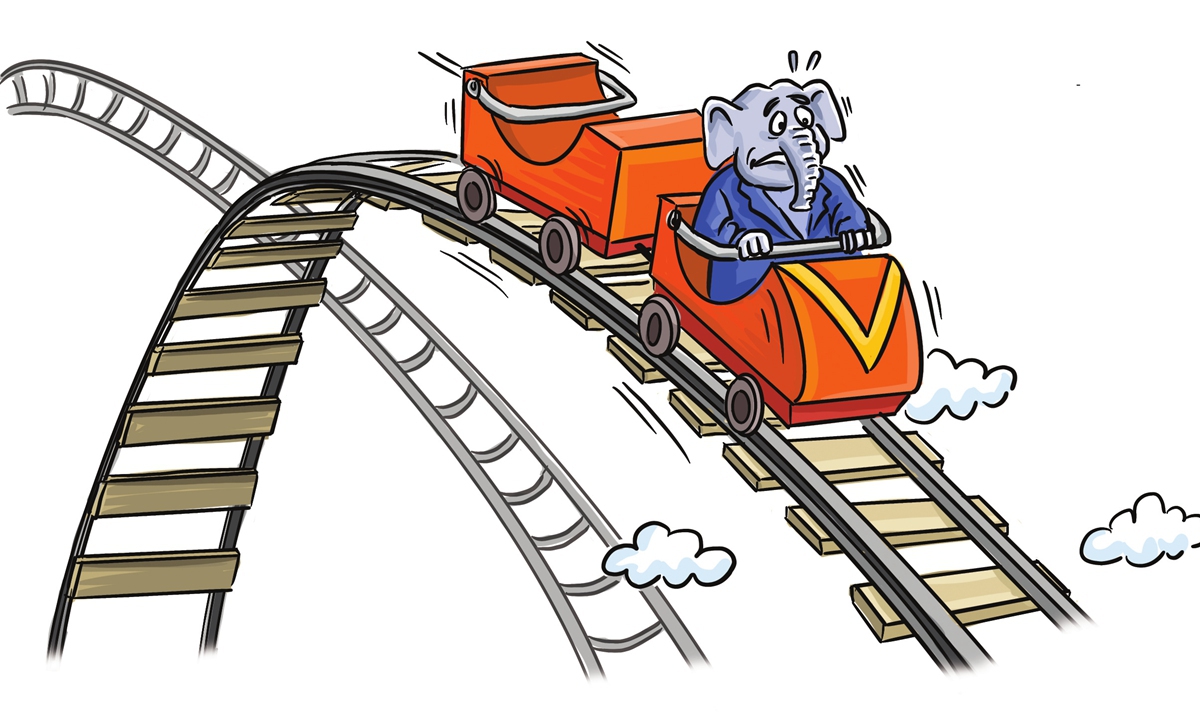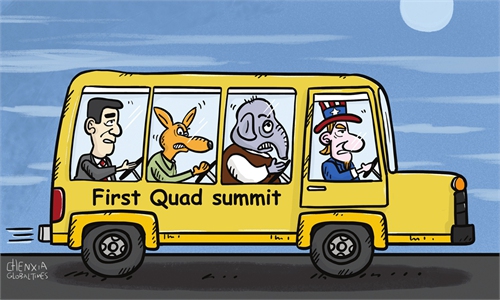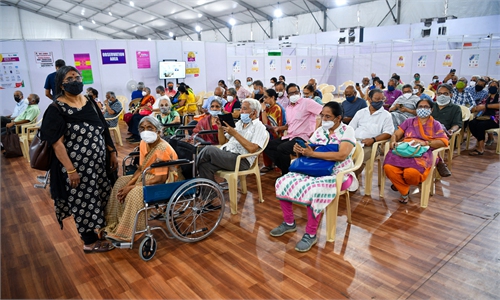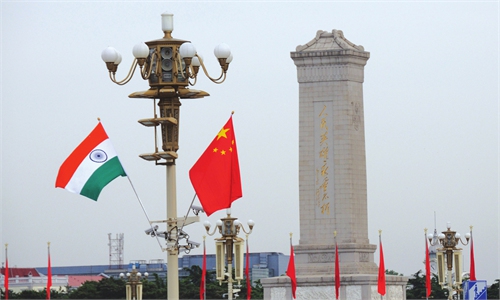COMMENTS / EXPERT ASSESSMENT
Economic development not democracy key to India’s rise

Illustration: Xia Qing/GT
The Quad virtual summit and US secretary of defense's plan to visit India in the coming days have attracted wide attention on India's international position in so-called Indo-Pacific and global geometry.India was never lacking ambitions. What the country lack of is a precise steering in its national development. India has not realized national economic and social stability, while blindly taking strategic venturing and speculations can hardly help with its super-power dream.
India has demonstrated an "ideologization trend" in its foreign policies in recent years, a repeat of its past misadventures. The country has been making great show of its democracy identity, tilting toward the so-called pro-democracy camp led by the US. Meanwhile India has been playing up an ideological contest with China.
By constantly ratcheting up tensions with China last year, Indian politicians have ramped up a smearing campaign against China's political and social system. After Joe Biden took over the White House in January, the administration is considering inviting India to the Global Democracy Summit.
However, the rift between the two countries is hard to hide. In an article in February, the US Time magazine questioned "how long will Joe Biden pretend Narendra Modi's India is a democracy ally?"
In order to achieve its own economic rise, an ideological foreign strategy will not work for India at all. Development is the top priority of India, and China is India's most important development partner. From the end of the cold war to 2014, India's identity was more defined in economic perspective - a major developing country, emerging economy and a power in a multi-polar world.
China has been taking economic cooperation as an important handle in dealing relationship with India. Chinese investment in India has surged in recent years, in particular in internet-related technology sector, playing a crucial role to India's economic development. From 2016 to 2019, China's start-up investments in India jumped from $381 million to more than $4.6 billion, growing a staggering12 times.
But with rising domestic economic nationalism and deepening strategic doubts against China, India had deviated from the course of cooperating with China, by taking a discriminative economic and trade policy against China. With its high independence on trade with China, India's discriminative policies are doomed to be self-destructive and counterproductive.
Democracy may serve as India's open sesame to the US, but it's hard for India to earn any commitment back. In fact, the most important strategic value for India to the US is its role in US' China strategy, rather than its so-called democracy system.
China is India's close neighbor that can't be moved away and one of its major trading partners. To develop close development partnership with China is always conducive for India and Indian people.
As Indian former National Security Advisor Shivshankar Menon once argued, the transformation into a strong, prosperous and modern country should be foremost among India's priorities. Therefore, for India, the best diplomatic policy is an 8-percent economic growth.
The author is deputy director of the Institute of South Asian Studies at the China Institutes of Contemporary International Relations. bizopinion@globaltimes.com.cn



